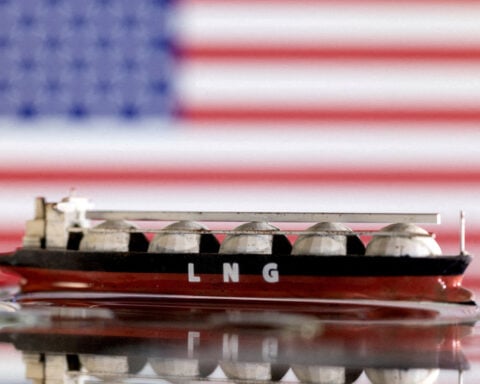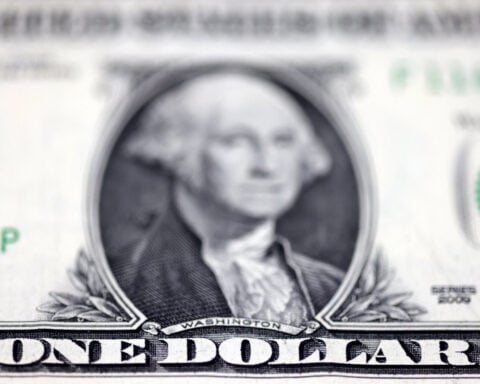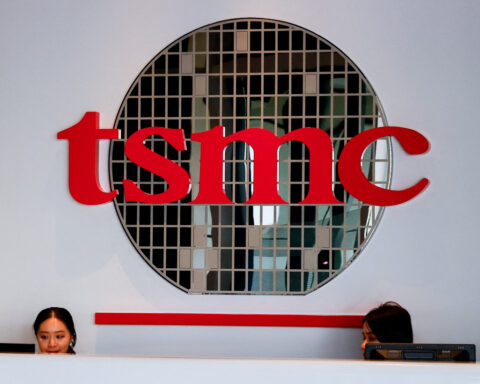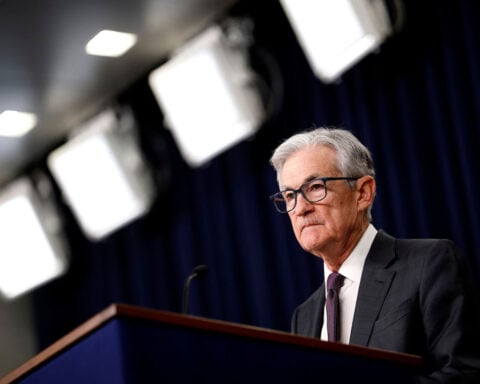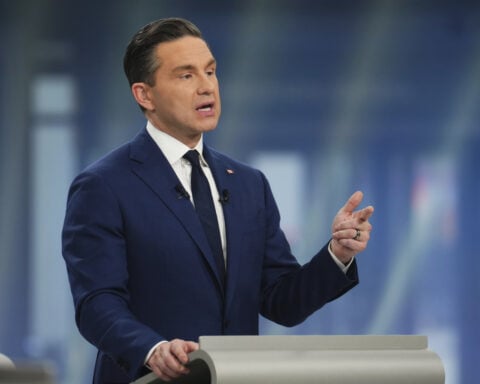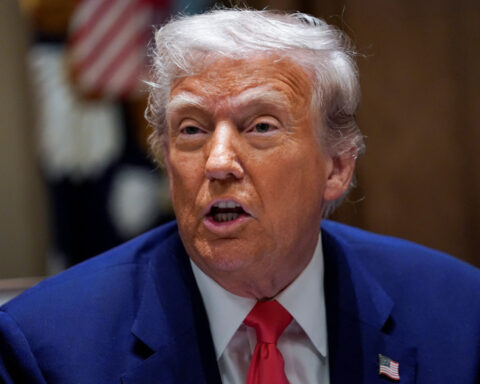LONDON (Reuters) -China announced additional tariffs of 34% on U.S. goods on Friday, upping the ante in a global trade war after President Donald Trump's sweeping tariffs this week.
Growing fears of a recession roiled global stocks for a second day on Friday. Banking stocks cratered as investors fretted about growth and priced in far more central bank rate cuts while benchmark 10-year U.S. Treasury yields slid below 4%.
COMMENTS:
STEPHANE EKOLO, MARKET & EQUITY STRATEGIST, TRADITION, LONDON
"China comes out swinging with an aggressive response to Trump's tariffs. This is significant and is unlikely to be over, hence the negative market reactions. Investors are afraid of a 'tit for tat' trade war situation."
PETER ANDERSEN, FOUNDER OF ANDERSEN CAPITAL MANAGEMENT, BOSTON
"The market, of course, is extremely surprised by China's aggressive retaliatory actions. I don't think many investors were anticipating such a sudden and large response in terms of the percentages of the tariffs back at the United States, so that certainly has set the market, which has already been wobbly, to be even more uncertain."
KENNETH BROUX, SENIOR STRATEGIST FX AND RATES, SOCIETE GENERALE, LONDON
"It just feeds this risk aversion and growth fears/recession in global trade."
CHRISTOPHER WONG, CURRENCY STRATEGIST, OCBC, SINGAPORE
"Tit for tat brings back memories of 2018 episode of trade war. Risk of slower global economic growth is expected to undermine cyclical FX including Aussie dollar, New Zealand dollar, and Asia-ex-Japan FX such as Korean won and CNH."
SAMY CHAAR, CHIEF ECONOMIST, LOMBARD ODIER, GENEVA
"It's still early to make a final assessment. There are two paths from here: There is the one where (Trump) shows openness to deals and even if we have a harsh start, with reciprocal tariffs and these responses by China, they show willingness to talk and bring tariffs lower in the months to come.
"The other path is he has no appetite to strike deals, wishes to maintain the tariffs for an extended period of time and that breaks the machine.
"I don't think this (Friday's Chinese retaliation) is a signal for one or the other. Everyone will flex their muscles, but it doesn't invalidate the idea that they make a deal at some point. But beside that, we need to have signs that at some point Trump is making comments that he is expecting to strike a deal."
EDDIE KENNEDY, HEAD OF BESPOKE DISCRETIONARY FUND MANAGEMENT, MARLBOROUGH, LONDON
"Others have maybe learned their lessons (from Trump's last term). They are fighting back and saying we can play the same game as you and we are more in a position of strength to negotiate."
"All that is doing is escalating the issue and causing more negative feedback into the market. The biggest concern is this gets pushed onto the consumer."
JAN VON GERICH, CHIEF MARKET STRATEGIST, NORDEA, HELSINKI
"The reaction from China appears stronger-than-expected but we have to look at the detail. If Trump reacts to China's retaliation, then markets could take another hit. There is a risk that things are going too far in the markets selloff, but who wants to catch a falling knife?"
(Reporting by Reuters global markets and finance teams;Editing by Alison Williams)

 Trump has begun another trade war. Here's a timeline of how we got here
Trump has begun another trade war. Here's a timeline of how we got here
 Canada's leader laments lost friendship with US in town that sheltered stranded Americans after 9/11
Canada's leader laments lost friendship with US in town that sheltered stranded Americans after 9/11
 Chinese EV giant BYD's fourth-quarter profit leaps 73%
Chinese EV giant BYD's fourth-quarter profit leaps 73%
 You're an American in another land? Prepare to talk about the why and how of Trump 2.0
You're an American in another land? Prepare to talk about the why and how of Trump 2.0
 Chalk talk: Star power, top teams and No. 5 seeds headline the women's March Madness Sweet 16
Chalk talk: Star power, top teams and No. 5 seeds headline the women's March Madness Sweet 16
 Purdue returns to Sweet 16 with 76-62 win over McNeese in March Madness
Purdue returns to Sweet 16 with 76-62 win over McNeese in March Madness

